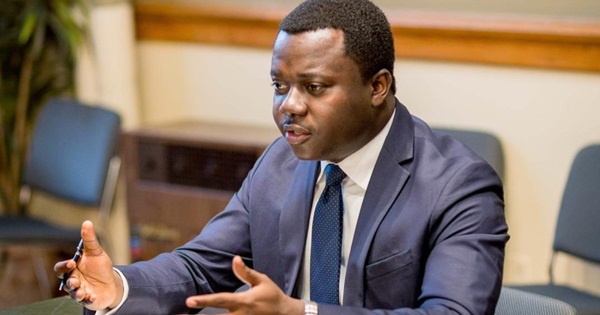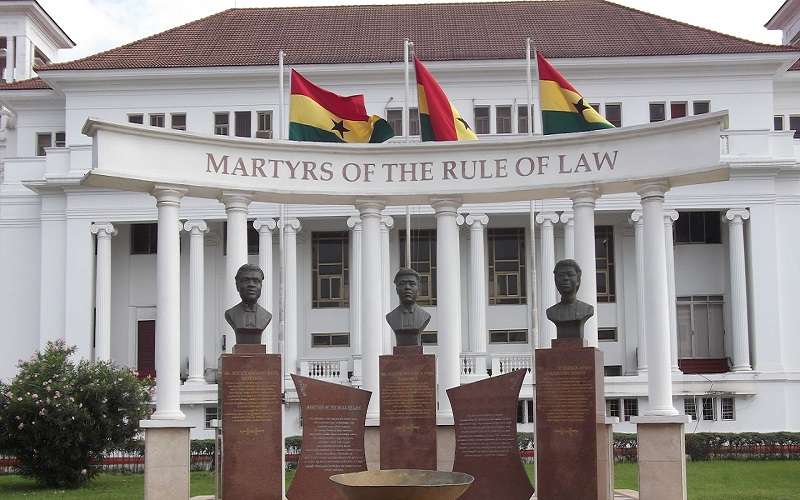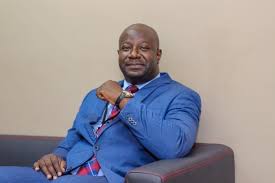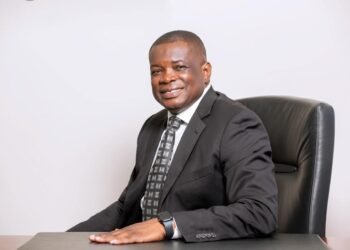Ghana’s democratic health is once again on trial, with judicial independence at the heart of public concern, as Hon. John Ntim Fordjour warned of a troubling pattern of political vengeance and institutional capture under President John Mahama’s “reset agenda.”
According to the MP for Assin South and member of Parliament’s Defense Committee, recent developments suggest a deeper, more disturbing attempt to bend the Judiciary to executive whims, a move that could undo decades of democratic progress.
“Your Excellency, Mr. President, under your watch, as part of your reset agenda, politically-motivated witch-hunting has seen the mass termination of thousands of jobs in the public sector.”
Hon. John Ntim Fordjour
Fordjour, clearly incensed by what he considers a deliberate and systematic erosion of state institutions, did not hold back in his critique.
He argued that even more troubling is the move to unseat the current Chief Justice—a step he believes lays bare the real agenda behind the so-called national reset.

“Yes, you may not be the first President to go down in history as the President who removed his Chief Justice on grounds of personal dislike. But that’s certainly not a noble and enviable precedent to follow either.
“All the reasons cited as the basis for prima facie for the suspension of Her Ladyship Justice Gertrude Torkornoo are far-fetched.”
Hon. John Ntim Fordjour
His concerns follow the controversial suspension of Chief Justice Gertrude Sackey Torkornoo, a decision that has stirred both legal and political waters.
Calls For National Resistance Grow
At the heart of this confrontation is judicial independence, a foundational pillar of democratic governance.
According to Fordjour, tampering with it—even under the guise of legal processes—risks plunging the country into dangerous political territory.
Fordjour cautioned that any attempt to replace the Chief Justice with someone aligned to political interests would violate the doctrine of separation of powers and seriously undermine Ghana’s constitutional framework.

He underscored that safeguarding judicial independence is essential to preserving the integrity of the nation’s democratic journey.
According to him, the concern is not just about one appointment—it is about a creeping normalization of executive dominance.
“The President’s palpable pursuit of removing the Chief Justice and to replace her with a politically-compliant one clearly affronts key principles of good governance and is dangerous for the future of Ghana’s democracy.”
Hon. John Ntim Fordjour
Fordjour urged civil society groups, religious bodies, the diplomatic corps, and concerned citizens to actively oppose what he described as a vengeful and harmful trajectory unfolding under President Mahama’s early leadership.
In his view, remaining silent in the face of such executive overreach amounts to complicity, not neutrality.
Political Intimidation Risks Judicial Independence
Fordjour’s concerns do not stop at the Judiciary. He painted a broader picture of a country under siege by executive power.
According to him, President Mahama’s first 120 days in office have been marked by a string of aggressive and unsettling moves.

“Let’s not watch on for this to be added to the plethora of infamous achievements of the President in his 120 days in office, ie, unfair mass terminations of jobs, storming of innocent political opponents’ homes with armed thugs, Dumsor, cocaine trafficking, and money laundering.”
Hon. John Ntim Fordjour
Accordingly, he accused the Mahama administration of weaponizing the state apparatus to punish dissent and consolidate power.
Whether one agrees with Fordjour’s stark warnings or not, the unease is undeniable. Ghana has long prided itself on a stable democratic trajectory in a region often plagued by instability.
Yet these recent events have left some wondering whether the foundations are beginning to crack.
Judicial independence is not merely a technical term in constitutional law—it is the barrier that protects citizens from arbitrary rule.
It ensures that the law, not politics, decides justice. When that barrier is breached, the consequences can be profound and lasting.
Fordjour’s rallying cry is clear: “Let’s save our democracy.” And in a country where democratic values have long been its badge of honor, that call deserves more than a passing glance.
READ ALSO: Davido Discloses Life-Changing Encounter with American Artist





















